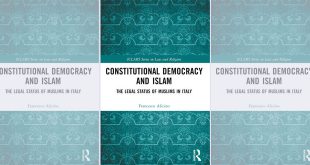The article draws mainly on the perspective of the Muslim minority in Kenya and argues that state control of waqfs in Kenya did not only interfere with normative practices but also partly laid the ground for the present-day economic and political marginalization and exclusion of Muslims.
Waqfs provided socio-economic security for the progeny of endowers and for other social welfare causes. Being thus guaranteed socio-economic well-being, these beneficiaries were antithetical to ruling elites in Muslim dynasties and Christian colonial powers, which led to the establishment of policies and institutions to control waqfs and check their growing influence. This development was not only counter to normative precepts but also set minority Muslims in predominantly Christian societies at odds with non-Muslim states. To what extent did civil policies and judgements influence waqfs? How did Muslims negotiate the secular state constructs vis-à-vis waqf practices? How did secular state control of waqfs influence the dynamics of Christian–Muslim relations? This discussion, based on ethnographic research in Kenyan coastal areas, employs two theoretical frameworks – Asad’s ‘Islam as a discursive tradition’ and Scott’s concept of ‘symbolic (ideological) resistance’. The article draws mainly on the perspective of the Muslim minority in Kenya and argues that state control of waqfs in Kenya did not only interfere with normative practices but also partly laid the ground for the present-day economic and political marginalization and exclusion of Muslims, leading to suspicion and ambiguous relations with their Christian compatriots.
Bibliographic Information
Title: Negotiating Muslim–Christian Relations in Kenya through Waqfs, 1900–2010
Author: Susanne Olsson
Published in: Islam and Christian–Muslim Relations,Volume 28, 2017 – Issue 4
Language: English
Length: 20 pages
Negotiating Muslim–Christian Relations in Kenya through Waqfs, 1900–2010
 Ijtihad Network Being Wise and Faithful Muslim in the Contemporary World
Ijtihad Network Being Wise and Faithful Muslim in the Contemporary World

